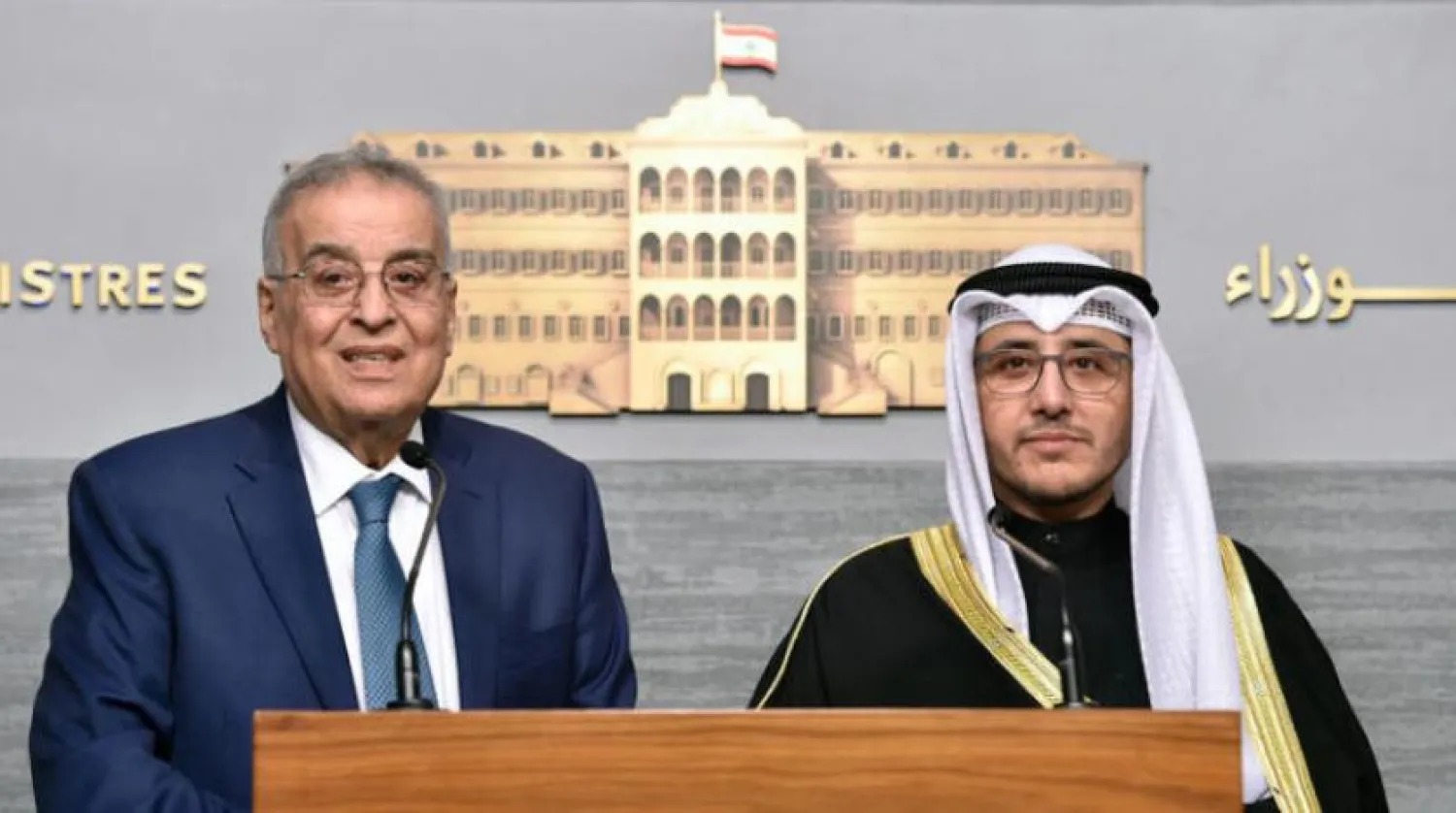The proposals exchanged by Lebanese Foreign Minister Abdallah Bou Habib and his Kuwaiti counterpart, Sheikh Ahmad Nasser al-Mohammad al-Sabah, reveal Beirut’s disregard for the role played by Hezbollah and the items linked to the implementation of UN Security Council resolutions 1559 and 1701.
Kuwait’s proposal includes 12-confidence building measures to help mend the rift between Gulf countries and Lebanon. Meanwhile, the Lebanese proposal suggests forming a joint committee to institutionalize relations and deal with differences.
Beirut ignoring Hezbollah’s part in destabilizing Lebanon’s ties with Gulf states surprised Arab sources handling the Levantine country’s affair.
Bou Habib’s Paper
The Lebanese top diplomat’s four-page proposal, which was reviewed by Asharq Al-Awsat, says that the measures and steps to fix the rift in Gulf-Lebanese relations presented by Sheikh Ahmad during his visit are welcomed by both the state and people of Lebanon.
The paper moves on to recognize the deep historical relations that bind Lebanon and Arab states, especially Gulf countries. It said that those ties are based on brotherhood, love, mutual respect, and common values.
Bou Habib also affirmed “the government’s full and complete commitment to taking all the necessary and required measures to enhance cooperation with the Gulf Cooperation Council (GCC) countries.”
However, he reaffirmed there are binding constants for the Lebanese government. They are emphasized in the ministerial statement and had won confidence in parliament.
Among the proposed principles in Bou Habib’s paper was “following up work on implementing the Taif Agreement, which has become part of the Lebanese constitution, and implementing reform clauses contained therein to ensure the requirements of national accord and coexistence.”
This is also needed for “holding parliamentary and presidential elections on time.”
It also stipulated that “Lebanon respects all the decisions of the Arab League and international legitimacy, and commits to serious and actual work to follow up and complete the implementation of its provisions in a manner that guarantees civil peace and national stability for Lebanon and fortifies its unity.”
The paper reiterated the Lebanese government’s commitment to the policy of disassociation and support for Arab consensus.
It stresses “the enforcement of the rule of law and protecting Lebanese sovereignty, especially in the face of what could disturb Lebanon’s relations with the Arab countries.”
The paper also turns attention to “following up and strengthening measures initiated by the Lebanese government in cooperation with Arab countries to prevent the smuggling of contraband, especially drugs, to GCC countries.”
According to Bou Habib, this cooperation has resulted in thwarting several qualitative smuggling operations.
The minister referred to the “heavy toll” that Lebanon bears due to the repercussions of international and regional situations. He said his country is carrying “huge burdens” due to the “conflict in Syria”, the repercussions of the Syrian displacement, the coronavirus pandemic, and the deadly explosion that “destroyed” the port of Beirut.
Moreover, Lebanon is “negotiating with the International Monetary Fund to agree on a recovery plan that will lift Lebanon out of its depression.”
“Just as Arab support for Lebanon throughout its crises was a key factor in overcoming many remnants of crises, we are all confident that our Arab brothers will not leave Lebanon alone in the face of difficulties,” said Bou Habib.
After emphasizing keenness on “strengthening relations with Arab countries, especially Gulf states,” the Lebanese minister suggested forming a “joint committee with the appropriate formula to institutionalize relations and address differences in a way that fortifies the Arab interest.”
Kuwait’s Paper
In contrast to Sheikh Ahmad’s proposal, Bou Habib’s paper ignored many of the ideas contained in the paper presented by the Kuwaiti foreign minister during his visit to Beirut on the 22nd of January.
“Seeking to heal the rift in Gulf-Lebanese relations and to build bridges of confidence with Lebanon—according to data resulting from the recent crisis-- firm measures and steps to eliminate any dispute are required,” read the Kuwaiti paper, listing 12 conditions :
1- Lebanon’s commitment to all the mandates of the Taif Agreement.
2- Lebanon’s commitment to all international and Arab League resolutions.
3- Emphasis on the civility of the Lebanese state in accordance with what is stated in the Lebanese Constitution.
4- Following Lebanon’s disassociation policy must be done in both word and action
5- Establish a specific time frame for the implementation of Security Council Resolutions 1559 (2004) regarding the disarmament of militias in Lebanon, Resolution 1680 (2006) regarding support for Lebanon’s political sovereignty and independence and full support for the Lebanese National Dialogue, and Resolution 1701 (2006) on Hezbollah’s weapons and the southern region of Lebanon, according to the basic principle of state control over the presence of arms outside the authority of the Lebanese government.
6- Stop Hezbollah’s interference in Gulf affairs in particular, and Arab affairs in general, and pledge to pursue any Lebanese party that engages in hostile acts against GCC countries.
7- Stop all activities of groups opposed to GCC countries, and prosecute anyone, whether citizens or residents in Lebanon, who attempts to incite or participate in violence against GCC governments.
8- Commitment to holding the parliamentary elections in May 2022, and then the presidential elections in October 2022, according to the scheduled dates without change.
9- Vetting Lebanese exports to the GCC countries by bilateral monitors to ensure that the exports are free of any contraband, especially drugs that target the social security of the GCC countries. In this regard, the same European mechanism can be adopted.
10- Extension of the Lebanese official authorities’ control over all state passages.
11- Establishing a security information exchange system between the GCC countries and the Lebanese government.
12- Working with the World Bank to find solutions to the issue of Lebanese citizens not being able to receive their deposits in Lebanese banks.














